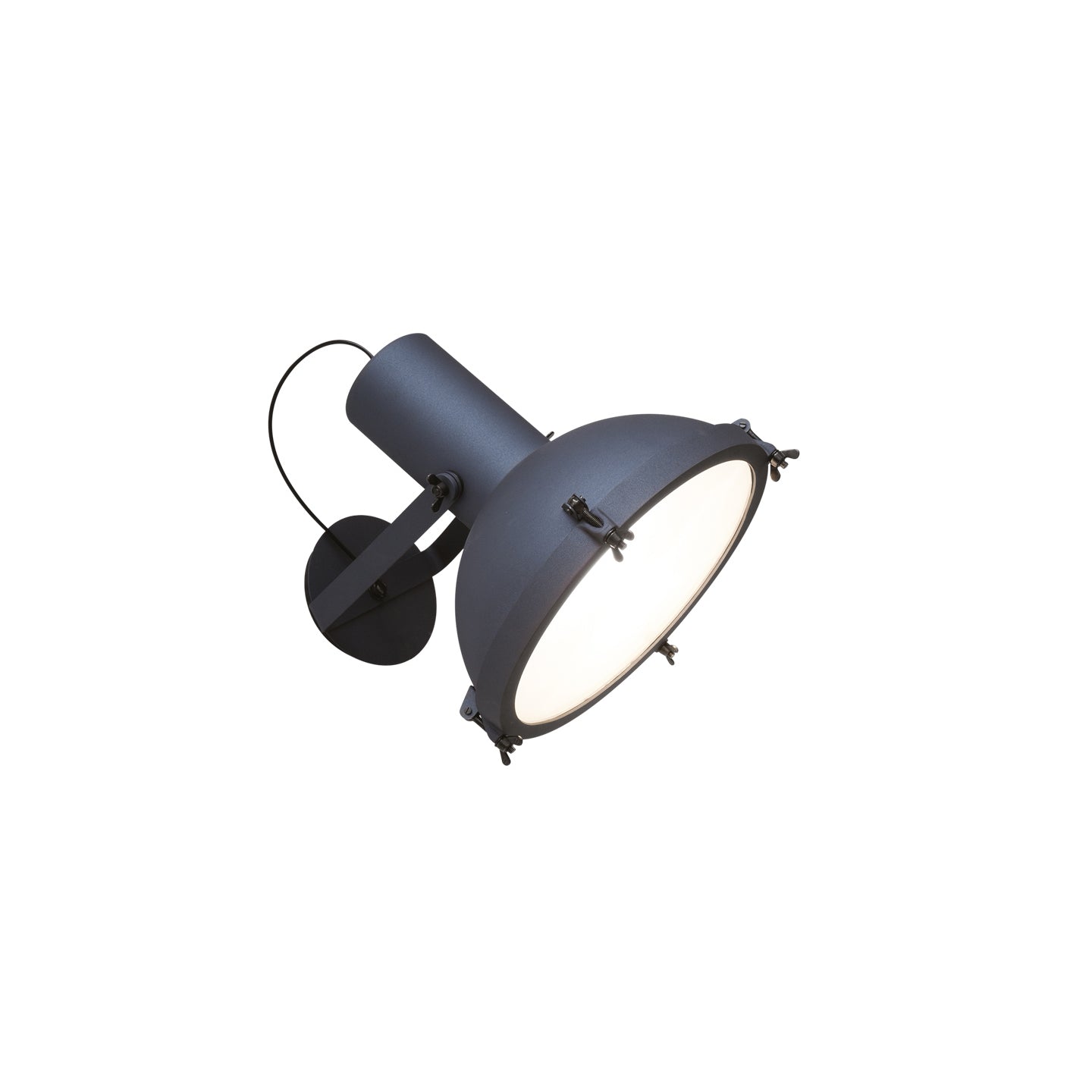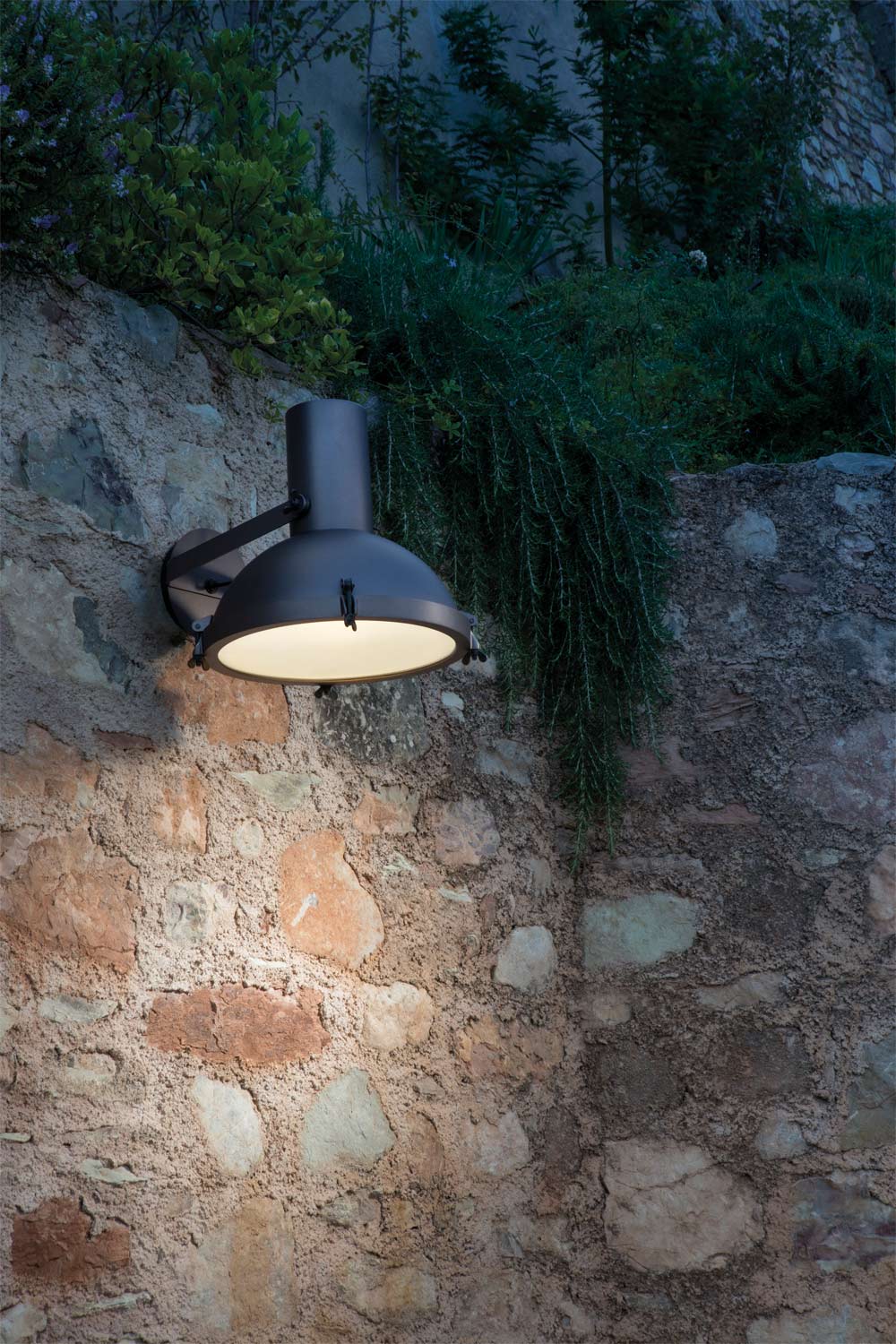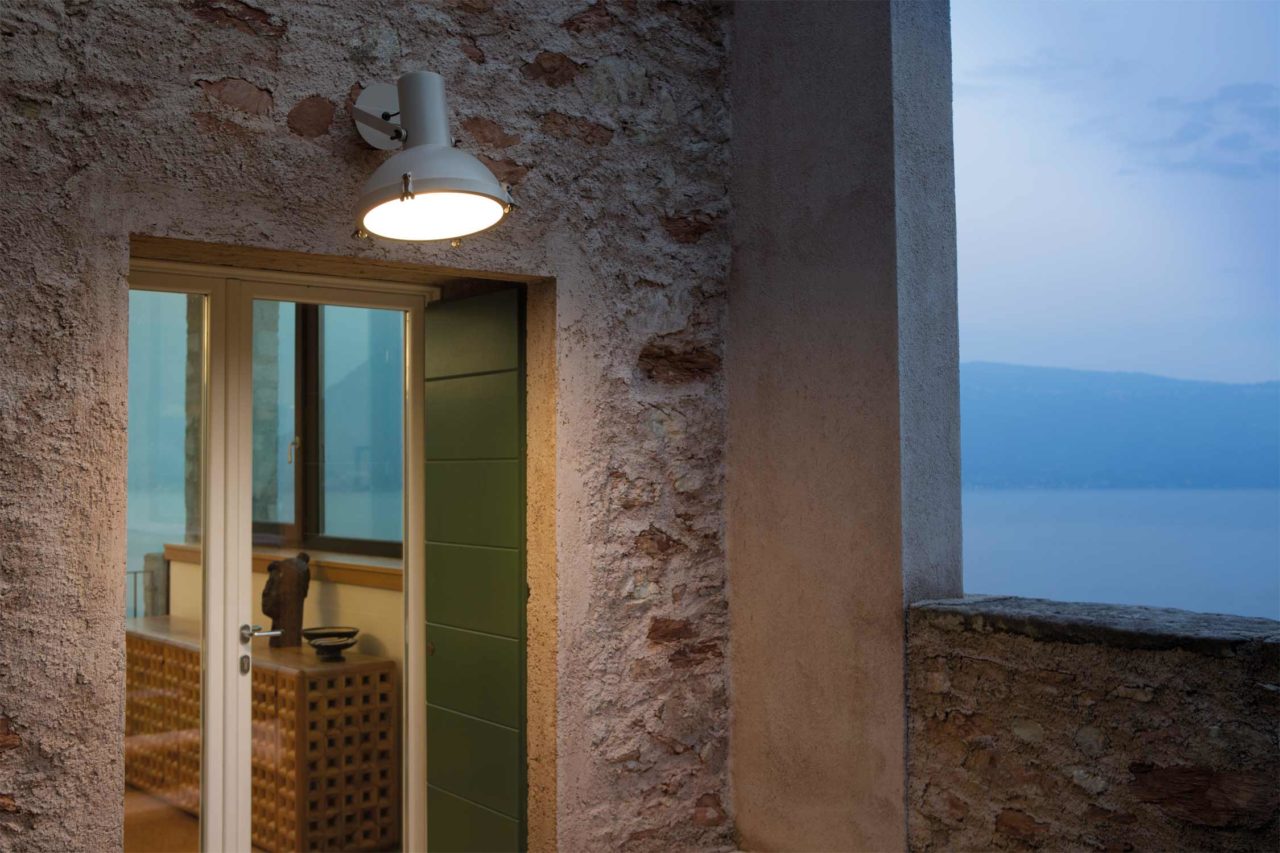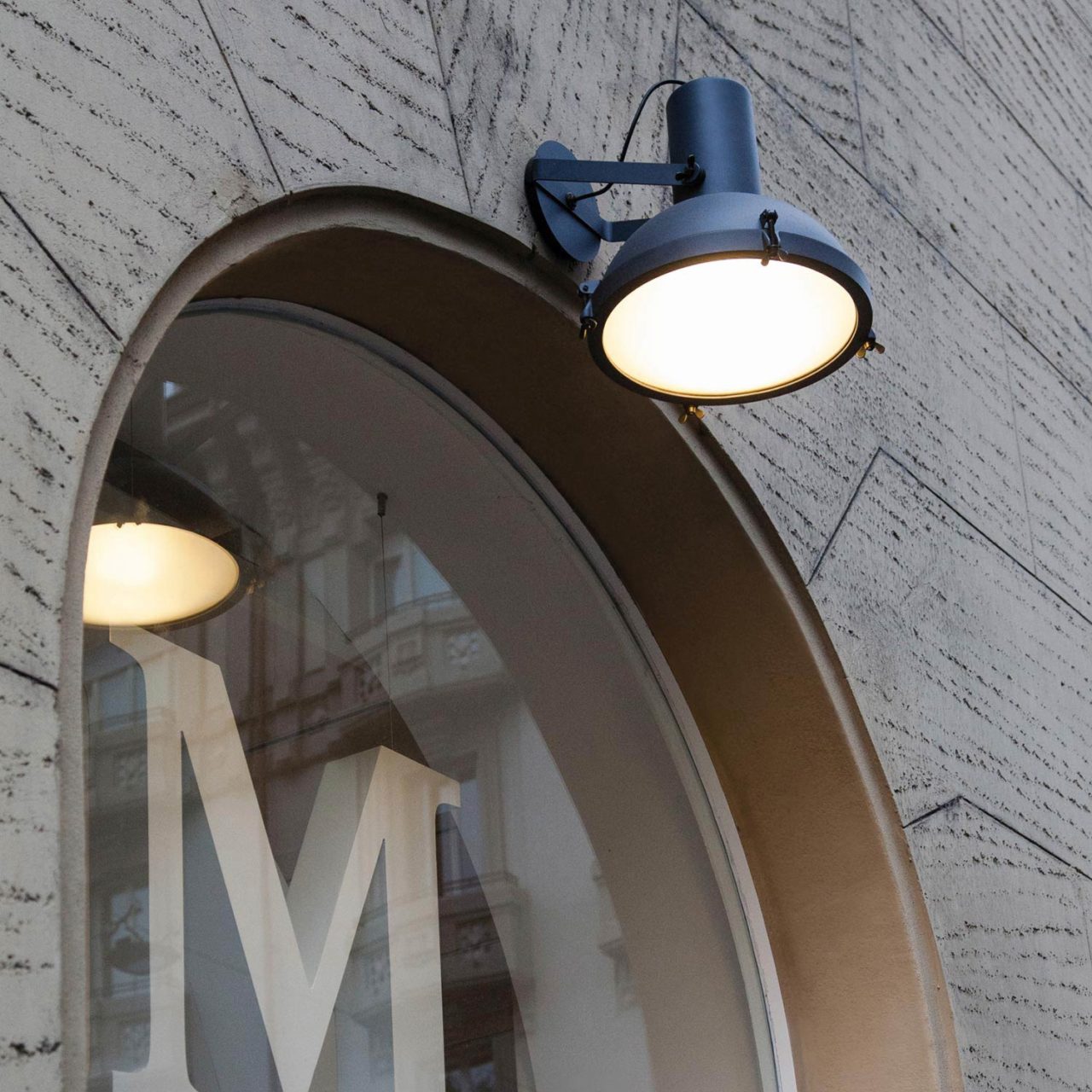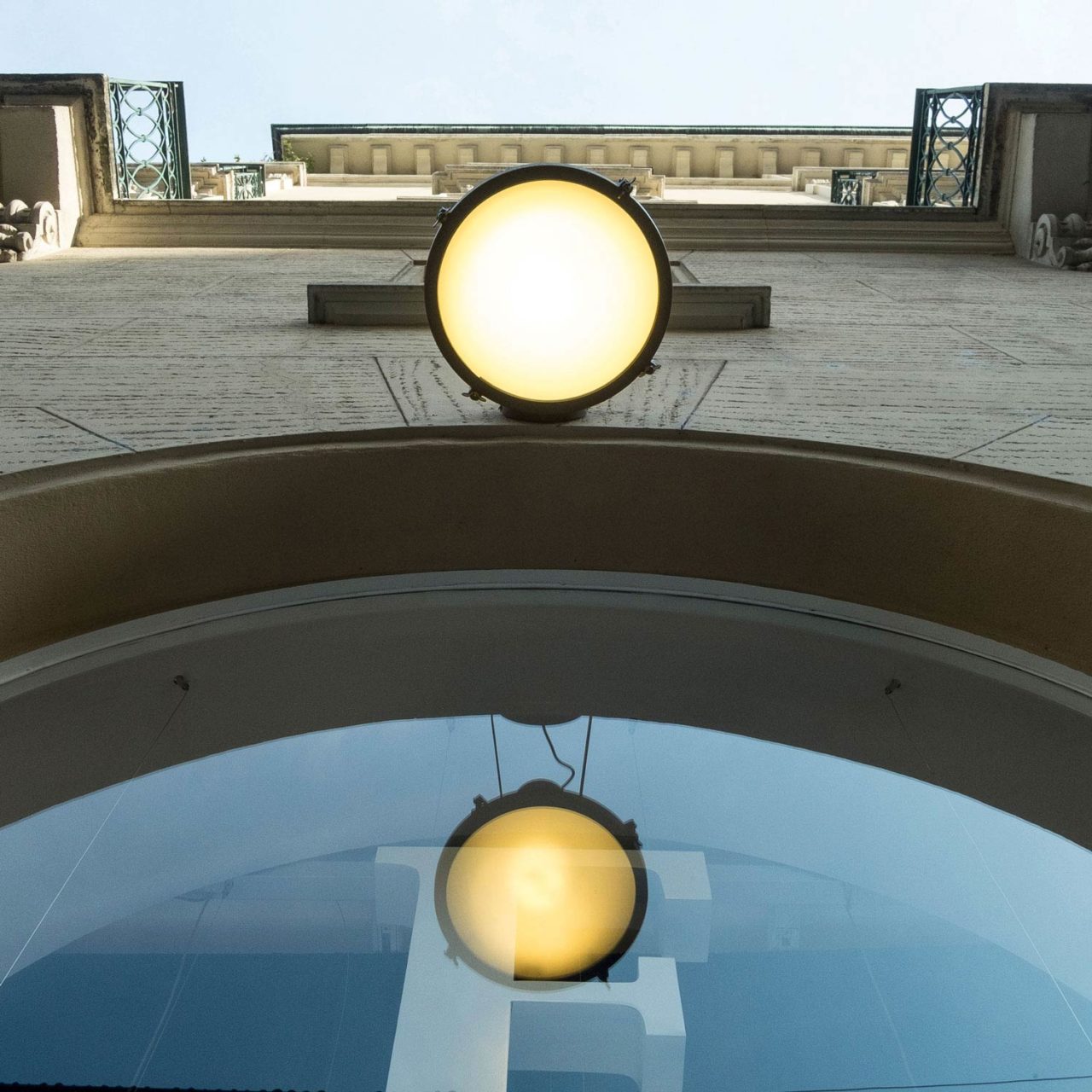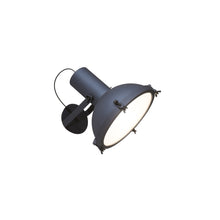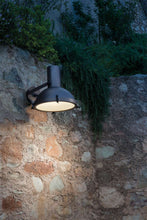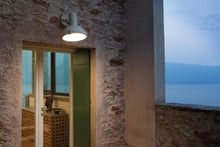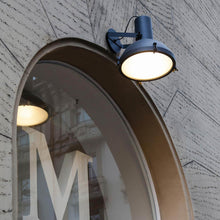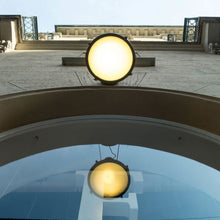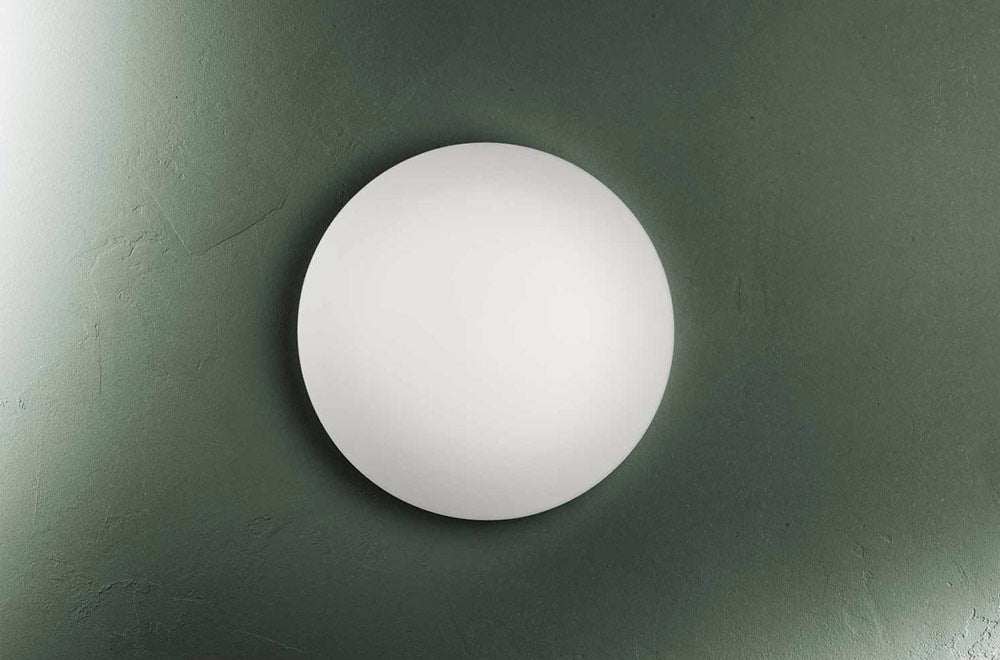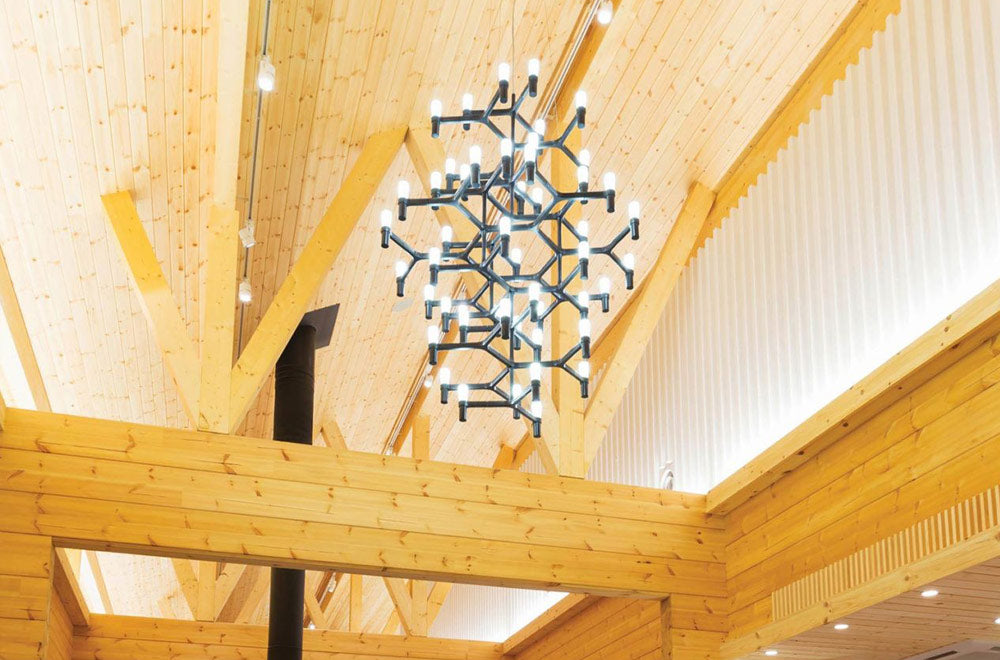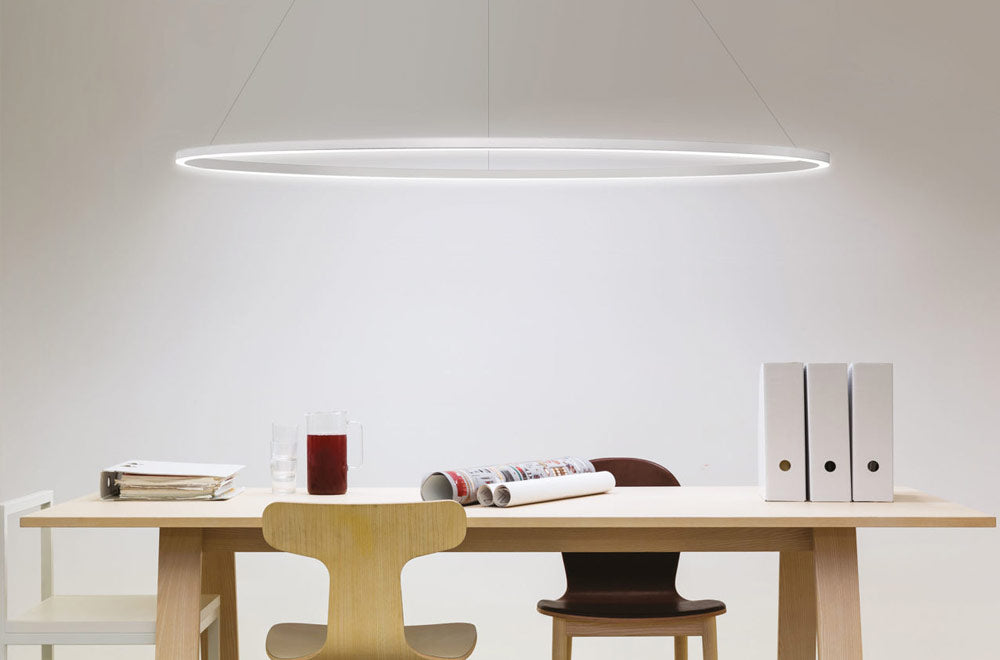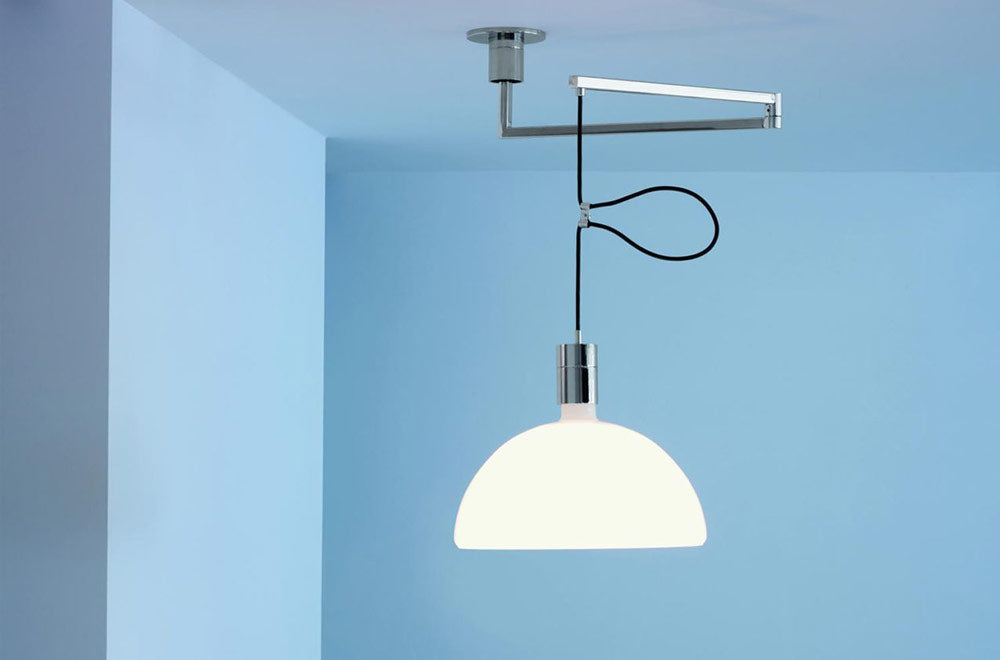The Projecteur of Le Corbusier was designed for the Chandigarh High Court, India, in 1954. Aluminum body painted in night blue, white sand or moka. Diffuser glass curved and sandblasted in the inner part. The Projecteur 365 has a painted body, base and canopies. Screws and small metal parts are black chromed. Available in the floor, wall/ ceiling and pendant versions. The wall/ceiling and pendant lamps are available also in the outdoor version (IP54). The Projecteur 165 Mini is available in the clamp, wall and pendant versions. Clamp and canopies are painted in matt black with screws and small
black chrome metal parts. Diffused and adjustable light output. E27 socket allows the use of fluorescent and LED sources.
Charles-Edouard Jeanneret, known as Le Corbusier, was born at La Chaux-de-Fonds, in the Swiss Jura, in 1887; he died in France, at Cap Martin, on the French Côte d’Azur, in 1965.
Early in his career his work met with some resistance owing to its alleged «revolutionary» nature and the radical look it acquired from its «purist» experiments; in time , however, it won the recognition it deserved and it is still widely admired. His message is still being assimilated by an ever increasing number of people in the profession, but his far-out avant-garde attitudes should be interpreted with due consideration for the use of rational systems in his planning method, evidenced by extremely simple modules and formes based on the functional logic.
«Functionalism tending not so much to an exaltation of the mechanical function at the expense of the symbolic, as to the rejection of symbol that he now considers outmoded and insignificant and the restoration of the pratical function as a symbol of new values»(¹)
In his activities as town-planner, architect and designer, his method of research continued to develop, at times going to the opposite extremes of a rich plastic idiom.






